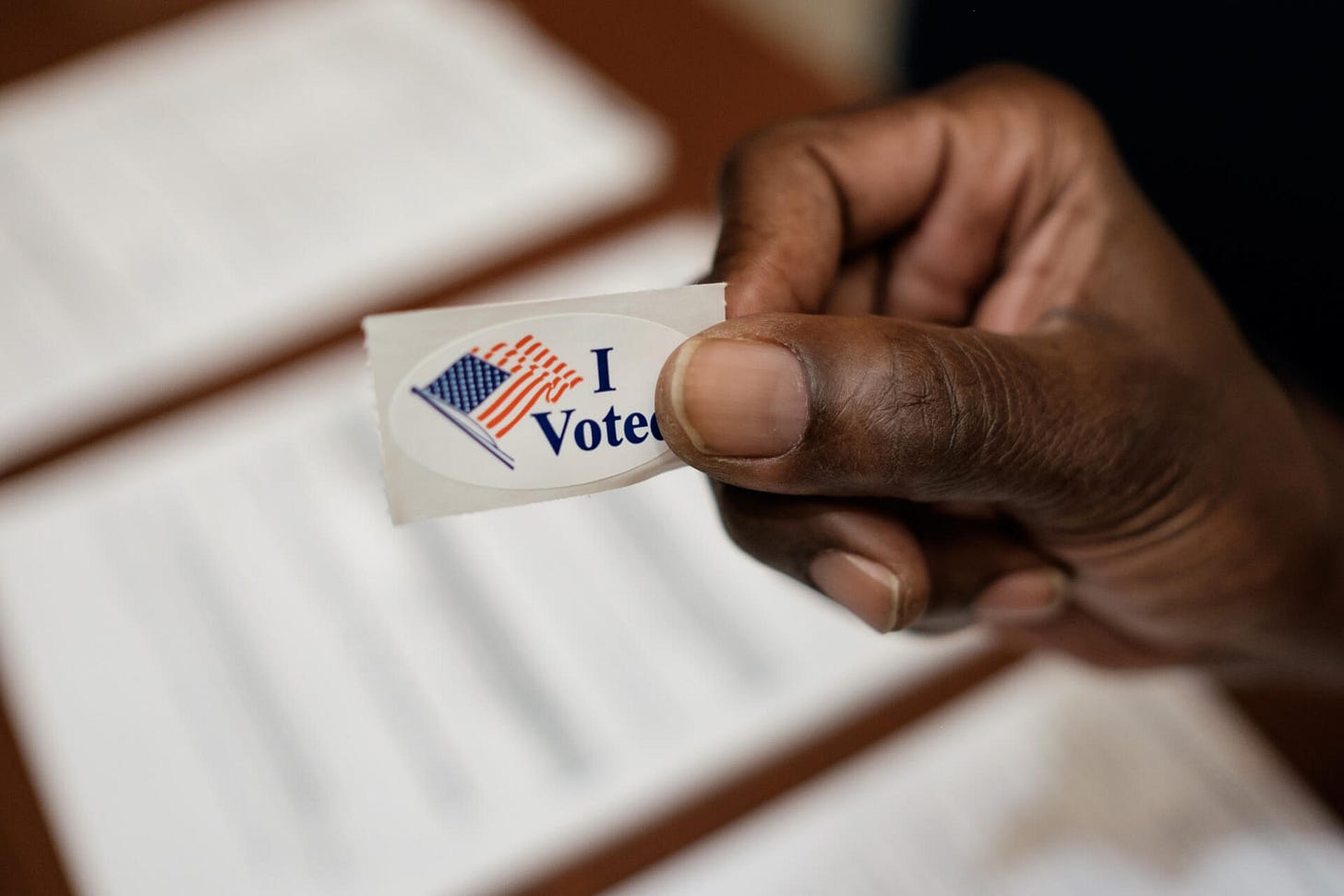The Fate Of The Voting Rights Act Just 60 Years Later ... In The Middle Of The Most Epic Election Ever
Gonzalez | a CLMI feature
Since the 18th century, people have been fighting for their voting rights in this country. In 1870, Black men were given the right to vote through ratification of the 15th Amendment in the Constitution, but their ability to vote was still widely suppressed until the Voting Rights Act was finally passed for both Black men and women nearly 100 years later in 1965. Women have also been fighting for their right to vote since the 1848 Seneca Falls Convention, which began the Women’s Suffrage Movement, until 1920, when the 19th Amendment was officially passed.
Despite these rights in place, the past decade - and particularly these past few years - have shown a disturbing trend in the willingness of certain powerful and primarily Republican party interests to take these rights away. The acceleration of evaporating voting rights has occurred at three pivot points:
The historic and devastating 2013 Supreme Court decision known as Shelby County v. Holder whereby a conservative majority removed the powerfully effective Section 5 “pre-clearance” provision that forced states with a history of suppression against Black and Brown voters to first check-in and clear any new election process schemes with the federal government. Gutting Section 5 opened up a wave of voter suppression and “Voter ID” schemes that now make it harder for marginalized communities to vote freely without restriction.
The pure mythology and lie that the outcome of the 2020 election was illegitimate and that President Joe Biden did not win. Pushed by Republicans, this false claim created a dangerous and unprecedented disinformation movement over the past several years that not only had election officials affiliated with former President Trump engaged in illegal activity, but it targeted elections officials with both unwarranted lawsuits and physical threats while prompting many state legislatures in primarily red states to pass voter suppression schemes.
A wave of lawsuits by Republicans against election administrators during this 2024 election is pushing election process systems to the brink, along with Trump-aligned election officials attempting to construct voter suppression schemes. As CNN reported …
Questioning the accuracy of voter rolls has long been a hallmark of right-wing efforts to raise doubts about the integrity of elections and featured prominently in 2020 when allies of the former president pushed false claims that scores of fraudulently cast votes helped Joe Biden win the presidency.
As of [September], at least three dozen cases related to voter rolls and their maintenance are pending in 19 states, according to the liberal-leaning Democracy Docket, which tracks election litigation.
Since the 2020 election, talks of tightening security on voting have risen sharply. Yet, there is no evidence of voter fraud or specious voter activity taking place that warrants the need for such measures. Baseless speculation around fraudulent votes and government conspiracies, which have led to regular threats of violence from the right, are at an all-time high, particularly since the attack on the U.S. Capitol in Washington, D.C. on January 6, 2021. The 2024 election invites fears of a similar fate. Trump, now the current Republican nominee, has made it abundantly clear that he is not accepting a loss in this election, and his supporters agree with this position.
All of this is happening against the backdrop of a significantly weakened Voting Rights Act of 1965, which will be just 60 years old by next year. This history is extremely recent, meaning there is a possibility that such critical public policy - created to eliminate racism in the political process - never had a chance to even survive past the century mark. During the span of the Voting Rights Act (“VRA”), not only have we witnessed an expansion of Black electoral leverage, along with Brown and other historically marginalized electoral groups, but we’ve also witnessed a historic increase in the number of Black and Brown elected officials on the local, state and federal levels. Yet, now, within less than 60 years, that progress toward a fully democratic, multi-racial society rooted in the VRA could be lost … and forgotten.
Georgia is one example. In early July of this year, the presidential battleground state (where 34 percent of the population is Black, according to Census data) began facing a deep challenge that threatened to spread to other states. With the passing of state Senate Bill 189, Georgia voters are forced to take extra steps in order to vote. This new law lowered barriers that made it difficult to challenge ballots, created new barriers for un-housed voters, and increased difficulty for interpretation of the law. Another requirement SB 189 set in place is the requirement that all advanced and absentee ballots must be counted within an hour of the polls closing, which is virtually impossible. Civil rights groups immediately cried foul and filed lawsuits against the legislation. Meanwhile, the Trump-aligned Georgia state board of elections had passed new rules ordering unrealistic hand counts of ballots in the state. However, the Georgia state Supreme Court just rejected those rules.
With the passing of this bill in Georgia and increased tensions across the country, a larger question evolves: are our voting rights truly safe in this election? In a recent, resurfaced interview with Trump on CNN, he claims that he had “every right” to interfere with an election. Not only does this defy the Constitution, but it defies numerous laws “prohibit[ing] interference with voting or interference with registering to vote in a U.S. election,” as a recent Congressional Research Service brief explains. In addition, there are state laws and guardrails that protect against the rejection of legitimate election certification process.
Trump regularly puts into question the legitimacy of this upcoming election and the future of voting rights. When speaking to his supporters, he claims that if he won, his supporters wouldn’t have to worry anymore about voting. While this can draw multiple meanings, it definitely leaves people and voters - particularly in marginalized populations - nervous about what’s over the horizon for not just this election, but for voting rights.
The United States’ system of selecting candidates and policymakers is no where near perfect. But it is a system that, to this day, still runs relatively smooth and remains the envy of other world democratic systems. One gold standard in that system is voting rights. If this right is taken away, the United States loses a core value that keeps it special and free from falling into an autocracy or, worse, a dictatorship. With tensions rising across the country, new barriers to a free vote erecting, and calls for violent chaos that can arise at any moment, people are rightly concerned. As we approach the 2024 election, the uncertainty surrounding voting rights and election integrity raises serious concerns about the future of our democracy as a whole. The Voting Rights Act is one of the most important tools, if not the most important one, we’ve got to guard against that uncertainty and what could turn into a monstrous fail.
MARISSA GONZALEZ is a Fellow with the Civic Literacy and Media Influence Institute at Learn4Life.
in partnership with …





